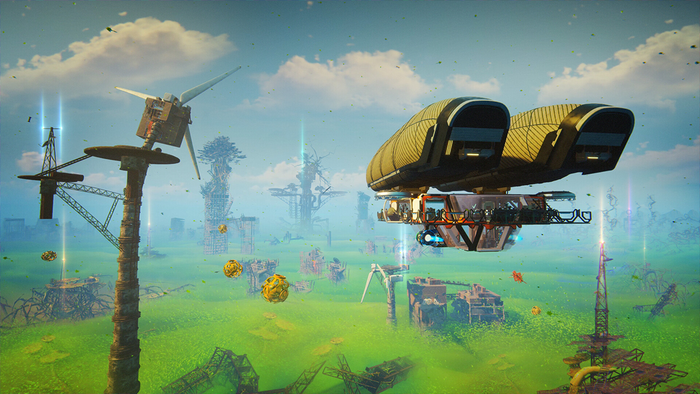
Featured Blog | This community-written post highlights the best of what the game industry has to offer. Read more like it on the Game Developer Blogs.
The recent success of Kickstarter game funding reminds that once again we have underestimated the disruptive potential of the Internet.

A couple of months ago, a friend and his wife decided to go into business for themselves and open up a unique coffeehouse in Durham, North Carolina called Cocoa Cinnamon. They needed a little bit of extra money to get things off the ground, so they used Kickstarter and asked friends for help – along with everybody else in the world. Funding this coffeehouse was my first experience with Kickstarter, and it was an eye-opener. In this instance, I was drawn to it by my personal relationship with the entrepreneurs in question. I don’t live in North Carolina and I have no expectation of any direct reward or recompense (even though I am getting a snazzy T-shirt for my donation). Still, three things about the Kickstarter process immediately resonated with me. First, it’s fun to help and share in an entrepreneur’s journey.. Second, it’s a great way for a business to pre-build what I would call an “advocate base” or a customer base already vested in your success. Third, it’s great that people can “invest” (or technically “donate”) based on their individual abilities to contribute.
After having such a rewarding feeling from my first Kickstarter experience, I read that game projects alone had received $10 Million in Kickstarter donations. I suppose I shouldn’t have been surprised that hundreds of thousands of gamers had been delighted to experience the same feeling of personal investment in their favorite creators and their ideas.
While Kickstarter helps to fund projects from all walks of life, games have seen an extraordinary amount of attention and funding in the last few months, following a wave of enthusiasm brought on by the Double Fine Adventure project. Plenty of credit is due to the reputations and creative thinking of Tim Schafer et al., but what we’re all beginning to discover is just how well the interactive funding process fits with gaming – an inherently interactive form of media.
At E3 I met Mike Wilson and read about a game-focused funding platform that he is involved with called Gambitious. Ultimately, Mike hopes that through Gambitious, gamers can not only make donations but also be real investors in new game development with possible monetary returns down the line. Indie game development veterans such as Mike are excited because game crowd-funding platforms have the potential to unleash creativity while eliminating what he called “the gatekeepers and focus groups.”
When I chipped in to help out a coffeehouse in Durham, I wasn’t making a business decision; I was helping out a friend. It felt great to not only help but to also tag along for the journey. These are sentiments that gamers everywhere now have the opportunity to enjoy. By making their appeals directly to gamers instead of publishers, larger-than-life personalities like Tim Schafer are engaging their audience on a more intimate level, drawing back the curtain and letting us all see (and in some way be a part of) their creative processes. They’re inviting us to become insiders, and in some cases soliciting our direct suggestions and feedback. Suddenly we’re not just buying products from companies, we’re lending our help to people we perceive as our friends.
It’s not surprising that gamers feel these connections. Gamers have intense attachment to their favorite titles, consoles, and designers. Kickstarter shows how far that devotion goes, and what we’re willing to do to demonstrate that support. Fans of old-school adventure games were so eager for a new title that they leapt at the chance to give millions of dollars to Tim Schafer, Al Lowe, and Jane Jensen. Fighting-game fans were so devoted to their e-sport of choice that they turned a 40-person Street Fighter tournament into a massive Las Vegas championship with corporate sponsors. Just this week, I read about author Neal Stephenson’s own Kickstarter for a technically accurate sword fighting game. Only three days into his fundraiser, fans have already pledged a quarter-million dollars.
This enthusiasm is what makes games such a good fit for Kickstarter and a great reason to launch Gambitious. Granted, not every project will succeed simply by virtue of using crowd-funding. The ones that do, however, clearly demonstrate the impact of gamers’ devotion. The gamer audience has always been heavily invested in the medium – so why not give them even more ways to invest heavily?
The Internet changes every industry. We all thought it would change games by opening up digital distribution and new business models such as free-to-play, and it did. Still, once again, we underestimated the disruptive potential of the Internet. It has also changed the funding of games and made it possible for gamers to be even more connected to their favorite games. We should all be really glad to see this happening.
Read more about:
Featured BlogsAbout the Author(s)
You May Also Like








